Courses
On-line training program on Caring Cities
In collaboration with the Seoul Metropolitan Government Human Resources Development Centre (SHRDC), which is the home of the Metropolis International Training Institute, UCLG, as well as UCLG-ASPAC we have developed an online training programme focused on the theme "Caring Cities". To ensure that all people can receive care and that care is provided under fair conditions for the whole of society, we have to work to make the way we care for each other and the way we are cared for fairer and more democratic.

Unit 1. What is a Caring City and what are Caring city services?
During this session, the concept of caring cities was delved into, along with the notion that creating such cities that prioritize the well-being of their residents requires integrating care services into the public agenda. The perspective that these services should only be considered as secondary should be discarded in favor of recognizing them as a fundamental cornerstone in the urban structure. Additionally, participants received guidance on implementing this approach within their own cities or metropolitan areas.
One of the examples provided in this first unit was the case of Bogotá City.
In collaboration with the Seoul Metropolitan Government Human Resources Development Centre (SHRDC), which is the home of the Metropolis International Training Institute, UCLG, as well as UCLG-ASPAC we have developed an online training programme focused on the theme "Caring Cities". To ensure that all people can receive care and that care is provided under fair conditions for the whole of society, we have to work to make the way we care for each other and the way we are cared for fairer and more democratic.

Unit 2. Caring Mobility
The lack of safe and healthy urban infrastructure, especially in the mobility sector, is one of the important issues for city and local governments to ensure inclusiveness and sustainability. In the second unit of this training program, we explored the opportunities and challenges of urban mobility with the aim of creating a safe and caring city.
We also presented the AVANTIA project, a project funded by the European Union for institutional global cooperation aimed at promoting sustainable urban mobility with a gender-inclusive perspective. An initiative of local implementation and global vision taking place in Bogotá between April 2022 and March 2025.
In collaboration with the Seoul Metropolitan Government Human Resources Development Centre (SHRDC), which is the home of the Metropolis International Training Institute, UCLG, as well as UCLG-ASPAC we have developed an online training programme focused on the theme "Caring Cities". To ensure that all people can receive care and that care is provided under fair conditions for the whole of society, we have to work to make the way we care for each other and the way we are cared for fairer and more democratic.
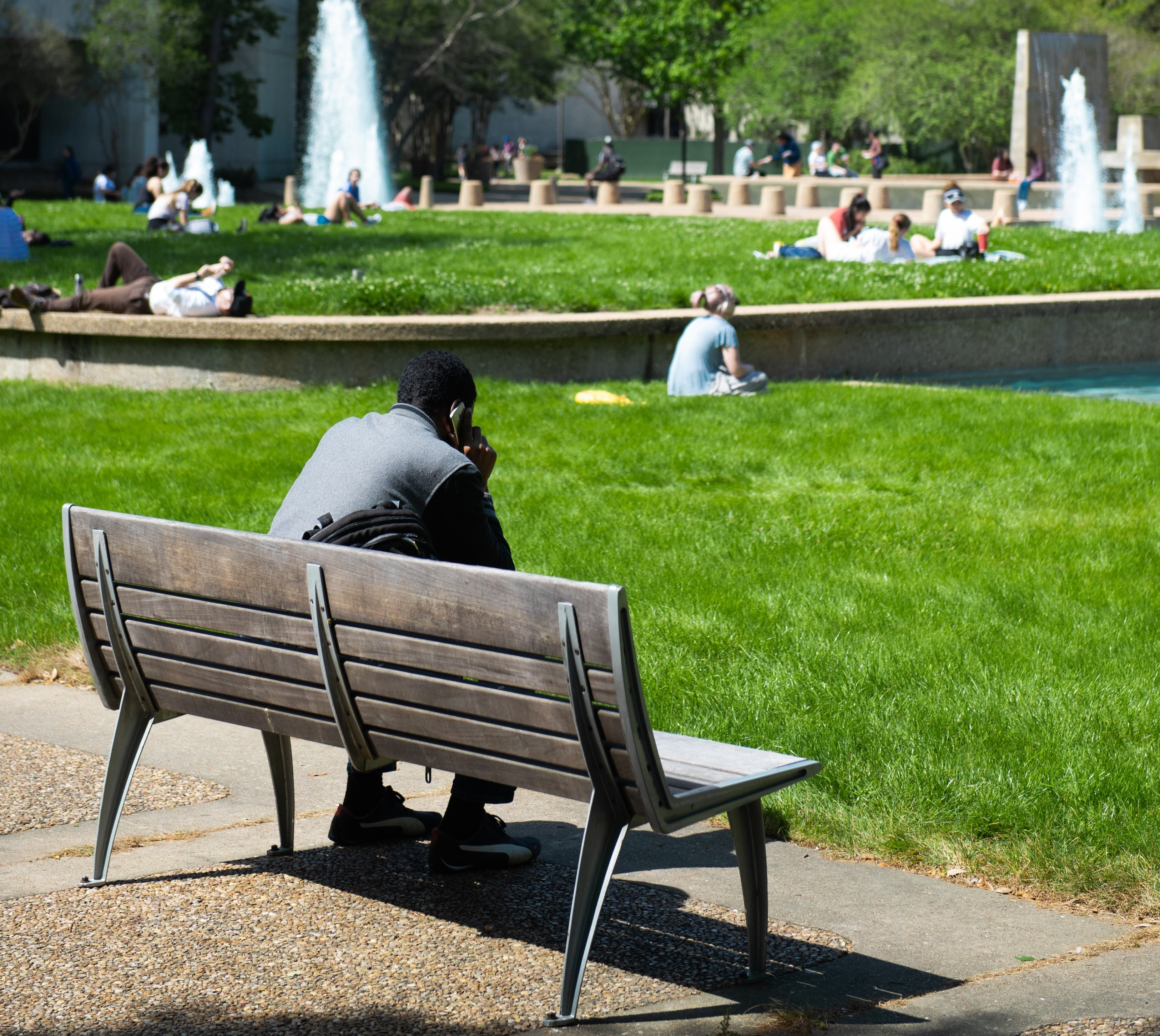
Unit 3. Caring public space
In the third unit of the training program, we explored some of the issues within the city infrastructure that had restricted and isolated individuals and groups from fully engaging in urban life. Additionally, we discussed potential solutions, drawing inspiration from the principles outlined in the Global Compact on Inclusive and Accessible Cities.
Training capsule - Strategic planning and metropolitan governance

In this free self-managed training capsule, prepared in collaboration with CIDEU, you will learn about the existing metropolitan planning and governance models, with their advantages and disadvantages, as well as the main metropolitan challenges and how to face them. It focuses mainly on the challenges faced by territories that are in the metropolitanization process and lasts approximately 1.5 hours.
You can register here
En esta cápsula de formación autogestionada gratuita, preparada en colaboración con el CIDEU, conocerá los modelos de planificación y gobernanza metropolitana existentes, con sus ventajas e inconvenientes, así como los principales retos metropolitanos y cómo afrontarlos. Se centra principalmente en los retos a los que se enfrentan los territorios que se encuentran en proceso de metropolitanización y tiene una duración aproximada de 1,5 horas.
Puede inscribirse aquí
On-line training program on Resilient City (2nd edition)
In collaboration with UCLG, UCLG-ASPAC, and the SHRDC as MITI HQ, we organised a Learning Program on "Resilient City", which provided various e-learning contents and diverse policy cases with active discussions among the participants.
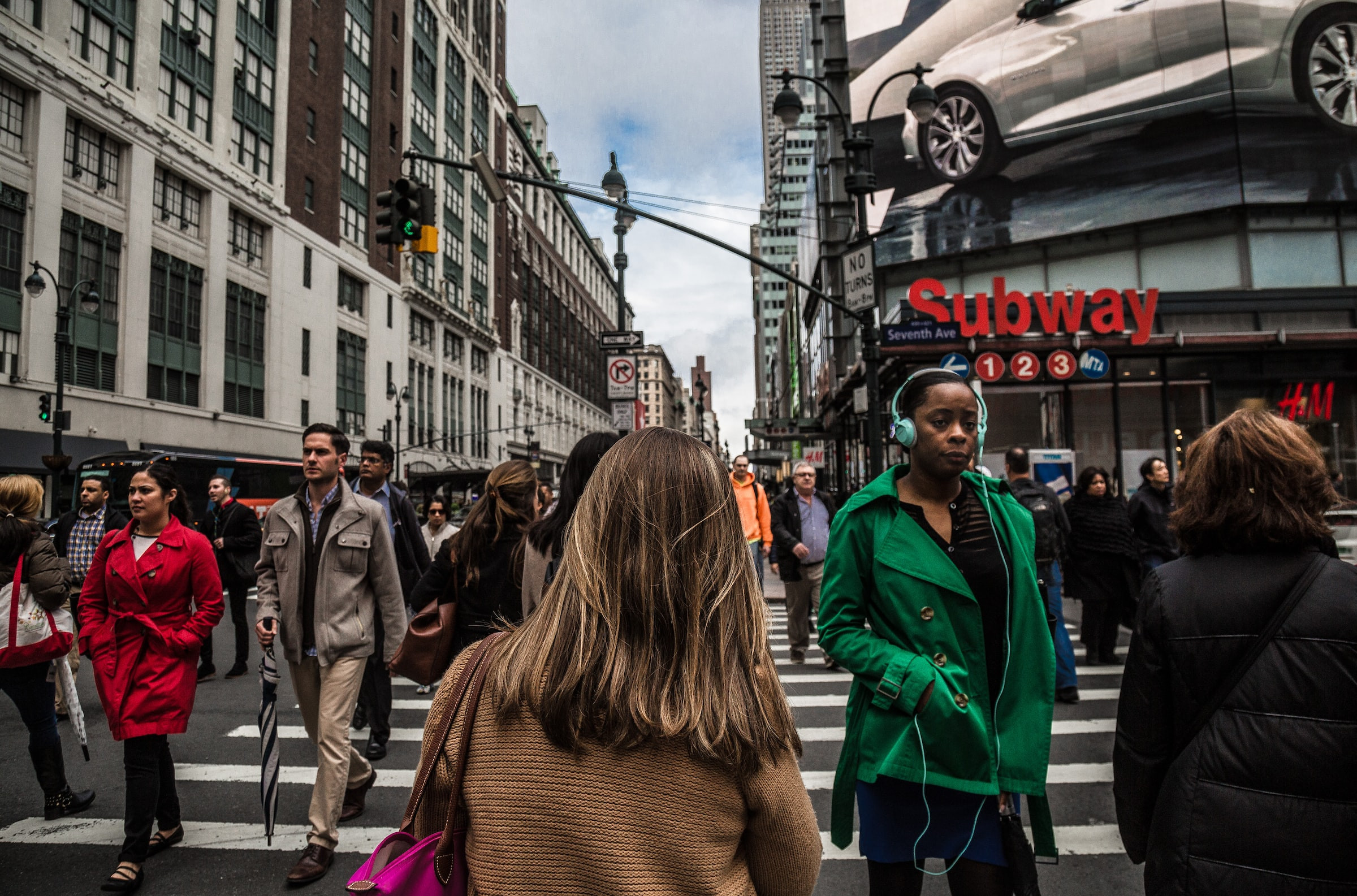
Unit 2. The three dimensions of resilience
During the second live session of this training program, we explored the concept "Resilient City" as well as the three dimensions of resilience: climate, economic and social.
Strategic planning and metropolitan governance (2nd edition) (ES)
CIDEU and Metropolis present the second edition of this 7-week course during which existing models of metropolitan governance and planning, with their advantages and disadvantages, will be presented, and we will analyse the main metropolitan challenges and how to face them. This course, delivered entirely in Spanish, will be offered free of charge to members of one of both organisations.
Junto con CIDEU, organizamos la segunda edición de este curso de 7 semanas en el que se presentaron los modelos de gobernanza y planificación metropolitana existentes, con sus ventajas y desventajas, y se analizaron los principales retos metropolitanos y cómo afrontarlos. Este curso, impartido íntegramente en español, se ofreció de forma gratuita a los miembros de una de ambas organizaciones.
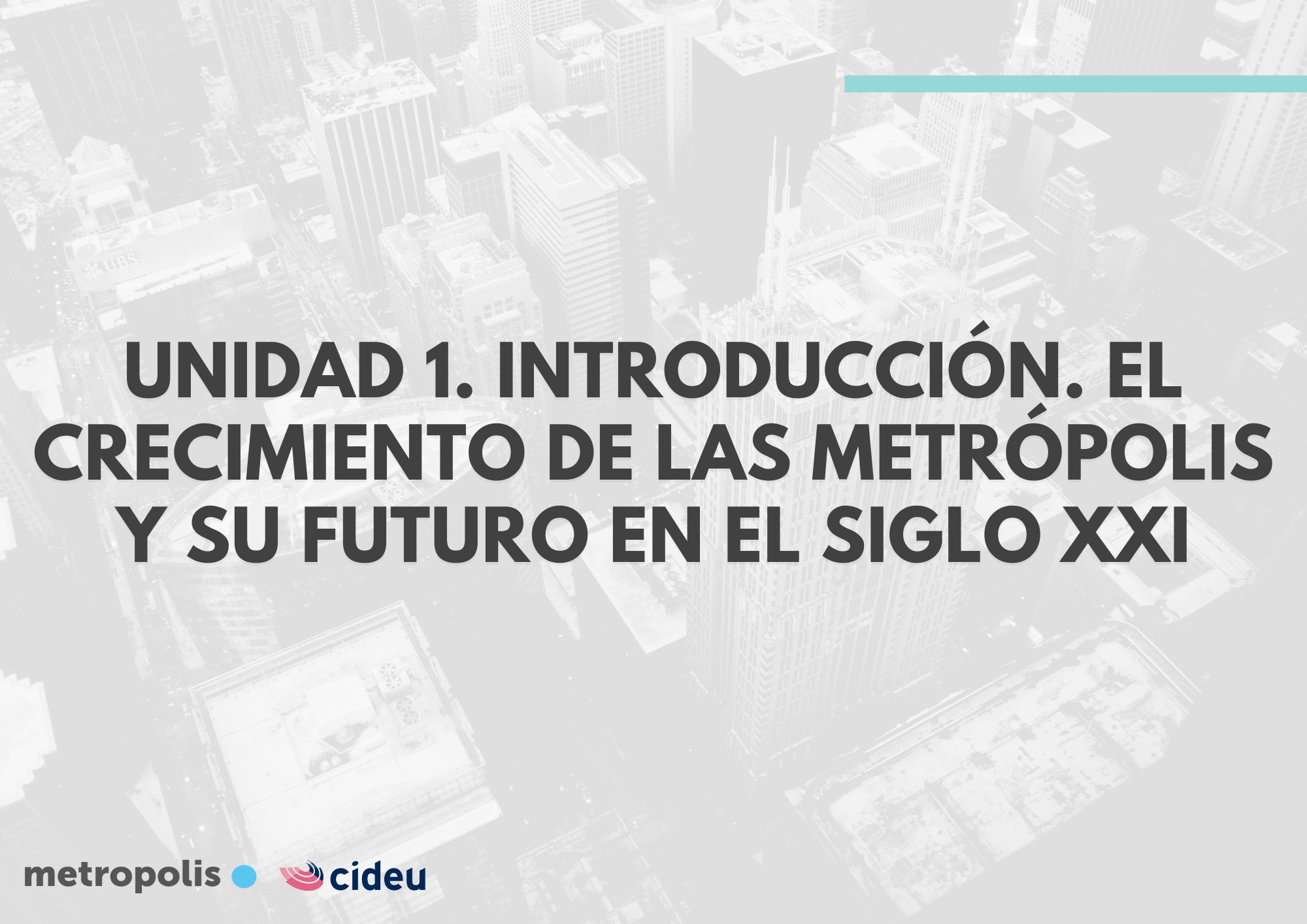
Unidad 1. Introducción. El crecimiento de las metrópolis y su futuro en el siglo XXI
Rafael H. Forero H., expert in metropolitan policy and governance at UN-Habitat, conducted the first session of this course, analysing the phenomenon of metropolisation today.
Rafael H. Forero H., experto en políticas y gobernanza metropolitana en UN-Habitat realizó la primera sesión de este curso, analizando el fenómeno de la metropolización actualmente.
CIDEU and Metropolis present the second edition of this 7-week course during which existing models of metropolitan governance and planning, with their advantages and disadvantages, will be presented, and we will analyse the main metropolitan challenges and how to face them. This course, delivered entirely in Spanish, will be offered free of charge to members of one of both organisations.
Junto con CIDEU, organizamos la segunda edición de este curso de 7 semanas en el que se presentaron los modelos de gobernanza y planificación metropolitana existentes, con sus ventajas y desventajas, y se analizaron los principales retos metropolitanos y cómo afrontarlos. Este curso, impartido íntegramente en español, se ofreció de forma gratuita a los miembros de una de ambas organizaciones.
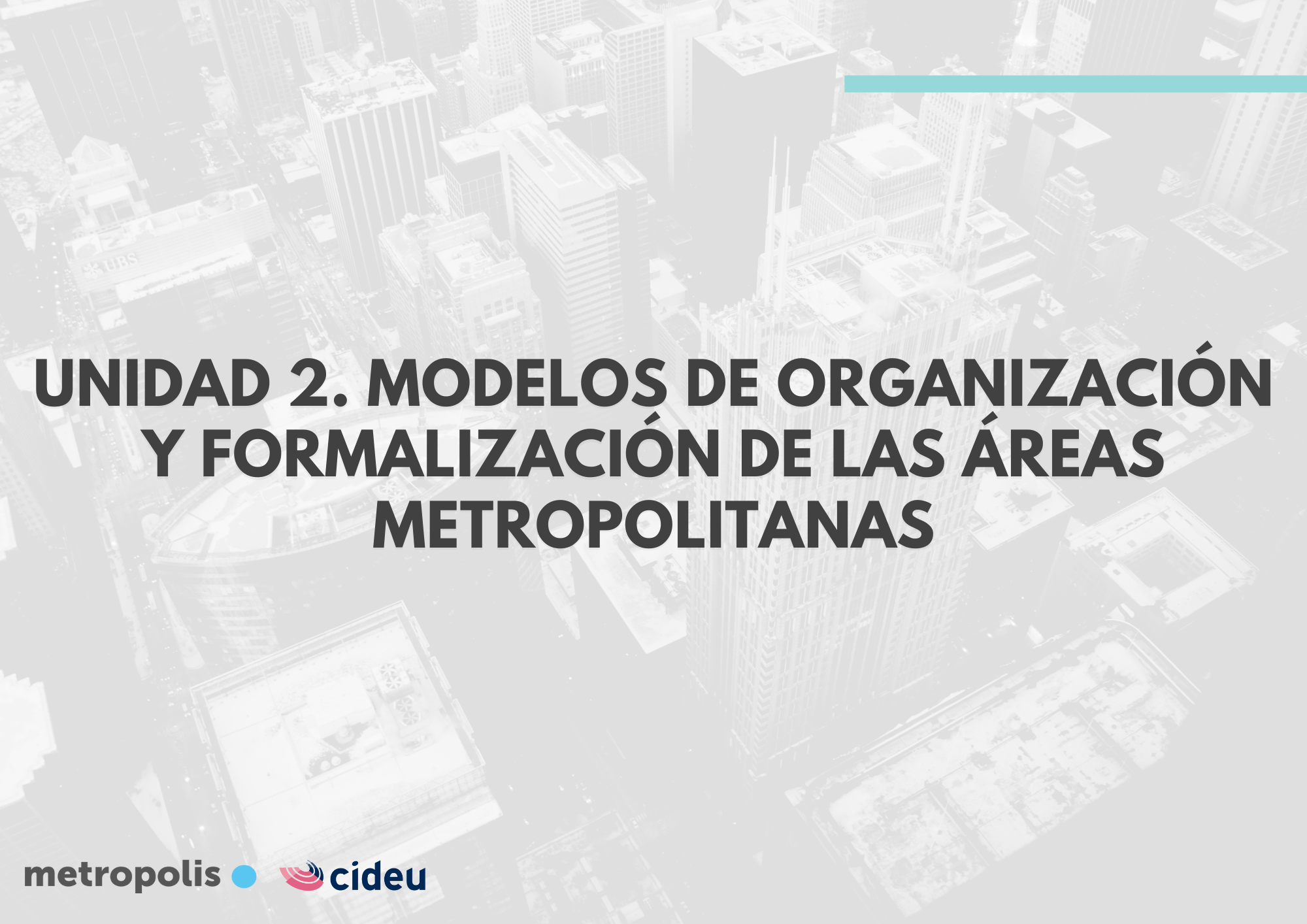
Unidad 2. Modelos de organización y formalización de las áreas metropolitanas
Yolanda Bichara, Executive Director of COAMSS/OPAMSS and Maria Peix, Head of the Cooperation Service of the AMB gave the second module's presentations analysing the organisational model of the Metropolitan Area of San Salvador and that of the Metropolitan Area of Barcelona.
Yolanda Bichara, Directora ejecutiva de COAMSS/OPAMSS y Maria Peix, Jefa del servicio de cooperación del AMB llevaron a cabo las ponencias del segundo módulo analizando el modelo de organización del Área Metropolitana de San Salvador y el del Área Metropolitana de Barcelona.
CIDEU and Metropolis present the second edition of this 7-week course during which existing models of metropolitan governance and planning, with their advantages and disadvantages, will be presented, and we will analyse the main metropolitan challenges and how to face them. This course, delivered entirely in Spanish, will be offered free of charge to members of one of both organisations.
Junto con CIDEU, organizamos la segunda edición de este curso de 7 semanas en el que se presentaron los modelos de gobernanza y planificación metropolitana existentes, con sus ventajas y desventajas, y se analizaron los principales retos metropolitanos y cómo afrontarlos. Este curso, impartido íntegramente en español, se ofreció de forma gratuita a los miembros de una de ambas organizaciones.

Unidad 3. Retos metropolitanos y cómo afrontarlos
Agustí Fernandez, Senior Researcher and Director of CIDOB's Global Cities Programme, together with Oriol Estela, General Coordinator of PEMB, analysed the third module of this training course.
Agustí Fernandez, Investigador senior y director del Programa Ciudades Globales de CIDOB junto con Oriol Estela, Coordinador general de PEMB, analizaron el tercer módulo de este curso formativo.
The metropolitan governance in Africa
Based on a pedagogical content designed by Metropolis, this learning program aims to introduce the metropolitan reality and how metropolitan governance with a gender perspective can be the key to face the challenges and threats that surround our metropolises. In addition, the course seeks to present governance models, as well as to emphasise on the importance of the Right to the city in a metropolitan context.
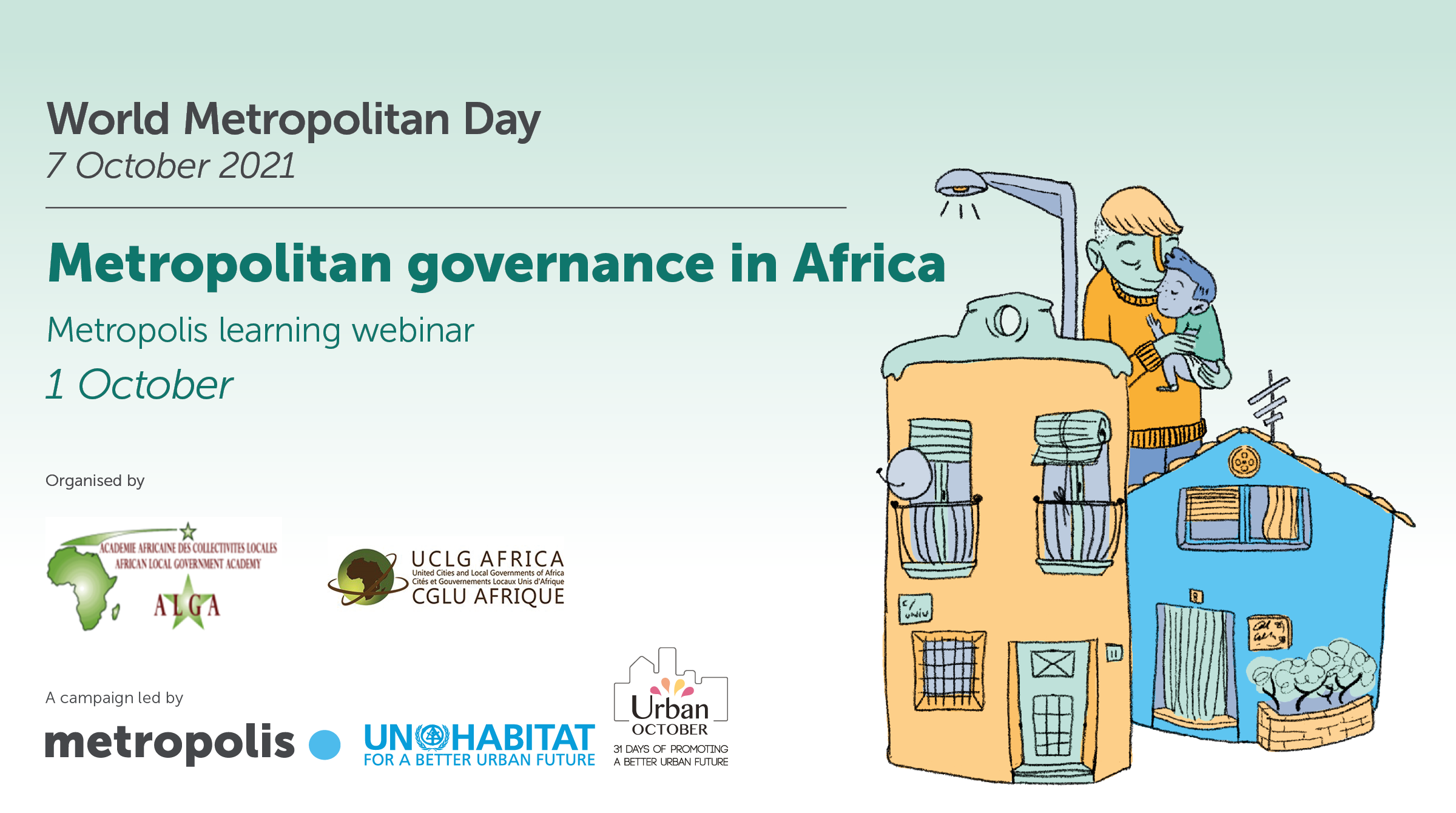
Session 1. Models of Metropolitan Governance
In this first session we analysed the different metropolitan governments models while looking at the situation of Africa. We also explored the elements that characterise metropolitan governance models and the main challenges and strategies to promote a form of metropolitan governance with a gender perspective.
The session, protagonized by the experts from City Insight, was divided in two parts. First of all, they related the theoretical framework with the African context and, after that, they analysed the implementation of a gender approach.
Based on a pedagogical content designed by Metropolis, this learning program aims to introduce the metropolitan reality and how metropolitan governance with a gender perspective can be the key to face the challenges and threats that surround our metropolises. In addition, the course seeks to present governance models, as well as to emphasise on the importance of the Right to the city in a metropolitan context.

Session 2. Right to the Metropolitan City in the Framework of the New Urban Agenda and the 2030 Agenda
In the second session of this course we addressed the importance of reconsidering the Right to the City in a metropolitan context that reflects the current reality of urban dynamics. We also analysed four different manifestations of the right to the city in the African context: the right to housing; the right to public space; the right to urban security from a feminist perspective; and the right to metropolitan mobility.
Based on a pedagogical content designed by Metropolis, this learning program aims to introduce the metropolitan reality and how metropolitan governance with a gender perspective can be the key to face the challenges and threats that surround our metropolises. In addition, the course seeks to present governance models, as well as to emphasise on the importance of the Right to the city in a metropolitan context.

Session 3. Case studies
This session was an opportunity, first, to understand the issues of sustainability, resilience and urban intelligence, second, to elucidate how they are embodied at the metropolitan scale, and third, to focus on the challenges and obstacles that African cities and metropolises face in deploying resilience strategies and innovative digital solutions.
Participants were able to learn more about different experiences from Morocco (in particular from Fez) and South Africa.
Based on a pedagogical content designed by Metropolis, this learning program aims to introduce the metropolitan reality and how metropolitan governance with a gender perspective can be the key to face the challenges and threats that surround our metropolises. In addition, the course seeks to present governance models, as well as to emphasise on the importance of the Right to the city in a metropolitan context.

Session 4. Peer Learning From Local Experiences
During the 4th session of this course city managers from Rabat, Tunis, Cairo, Nouakchott, Abdijan, Harare and Kigali participated in a peer review of their local experiences facing the challenges produced by the rapid urban growth and the COVID-19 pandemic, giving a particular mention to the role of digitalisation.
On-line training program on Resilient City (1st edition)
To highlight the challenges and threats that cities must face in order to remain economically, socially and disaster resilient, Metropolis jointly with SHRDC, UCLG and with the collaboration of ASPAC organized a three weeks on-line training program called “Resilient City.
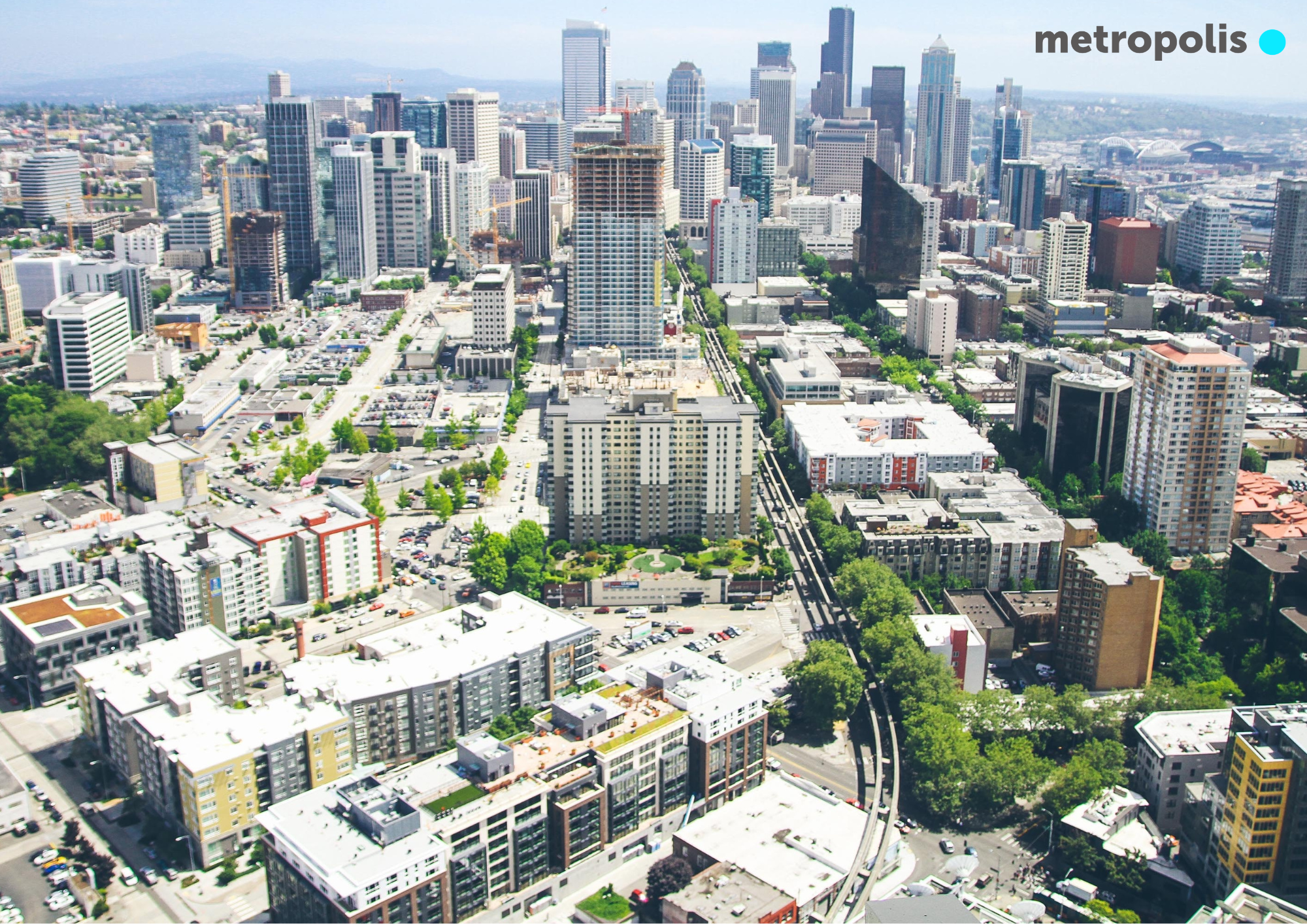
Session 2. Learning from Cities
Strategic planning and metropolitan governance (1st edition) (ES)
CIDEU y Metropolis organizaron conjuntamente un curso de 7 semanas de duración durante las cuales se dieron a conocer modelos de gobernanza y planificación metropolitana existentes, con sus ventajas e inconvenientes, y se analizaron los principales retos metropolitanos y cómo enfrentarlos. Este curso, impartido íntegramente en español, se ofreció de forma gratuita a los miembros de ambas organizaciones
CIDEU and Metropolis jointly organised a 7-week course during which existing models of metropolitan governance and planning, with their advantages and disadvantages, were presented, and the main metropolitan challenges and how to address them were analysed. This course, entirely in Spanish, was offered free of charge to members of both organisations.
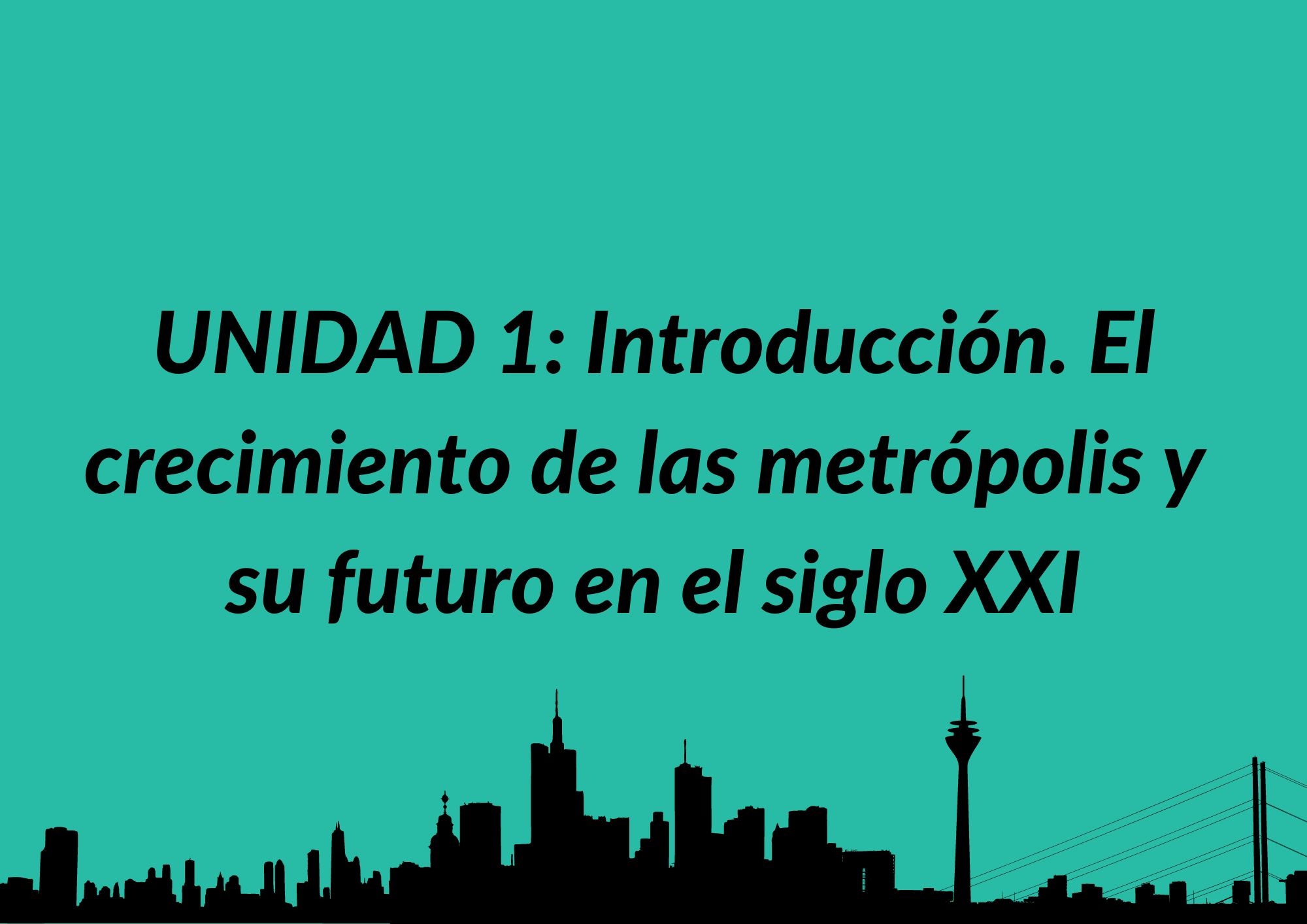
Unidad 1. Introducción. El crecimiento de las metrópolis y su futuro en el siglo XXI
Octavi de la Varga, antiguo Secretario General de Metropolis, realizó la primera sesión de este curso, analizando el fenómeno de la metropolización actualmente.
Octavi de la Varga, former Secretary General of Metropolis, conducted the first session of this course, analysing the phenomenon of metropolisation today
CIDEU y Metropolis organizaron conjuntamente un curso de 7 semanas de duración durante las cuales se dieron a conocer modelos de gobernanza y planificación metropolitana existentes, con sus ventajas e inconvenientes, y se analizaron los principales retos metropolitanos y cómo enfrentarlos. Este curso, impartido íntegramente en español, se ofreció de forma gratuita a los miembros de ambas organizaciones
CIDEU and Metropolis jointly organised a 7-week course during which existing models of metropolitan governance and planning, with their advantages and disadvantages, were presented, and the main metropolitan challenges and how to address them were analysed. This course, entirely in Spanish, was offered free of charge to members of both organisations.
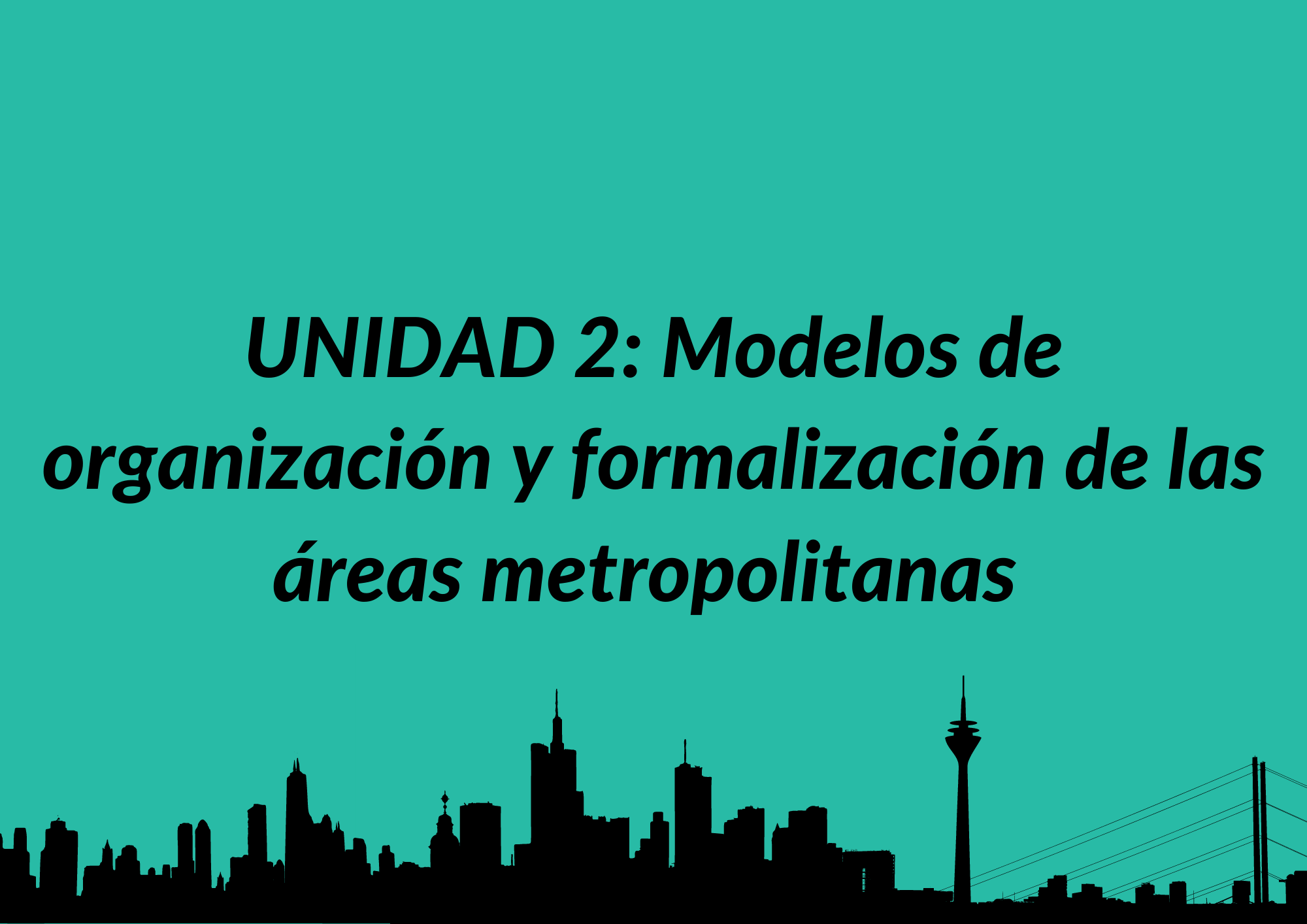
Unidad 2. Modelos de organización y formalización de las áreas metropolitanas
Yolanda Bichara, Executive Director of COAMSS/OPAMSS and Maria Peix, Head of the Cooperation Service of the AMB gave the second module's presentations analysing the organisational model of the Metropolitan Area of San Salvador and that of the Metropolitan Area of Barcelona.
Yolanda Bichara, Directora Ejecutiva de COAMSS/OPAMSS y Maria Peix, Jefa del Servicio de Cooperación del AMB realizaron las presentaciones del segundo módulo analizando el modelo organizativo del Área Metropolitana de San Salvador y el del Área Metropolitana de Barcelona.
CIDEU y Metropolis organizaron conjuntamente un curso de 7 semanas de duración durante las cuales se dieron a conocer modelos de gobernanza y planificación metropolitana existentes, con sus ventajas e inconvenientes, y se analizaron los principales retos metropolitanos y cómo enfrentarlos. Este curso, impartido íntegramente en español, se ofreció de forma gratuita a los miembros de ambas organizaciones
CIDEU and Metropolis jointly organised a 7-week course during which existing models of metropolitan governance and planning, with their advantages and disadvantages, were presented, and the main metropolitan challenges and how to address them were analysed. This course, entirely in Spanish, was offered free of charge to members of both organisations.
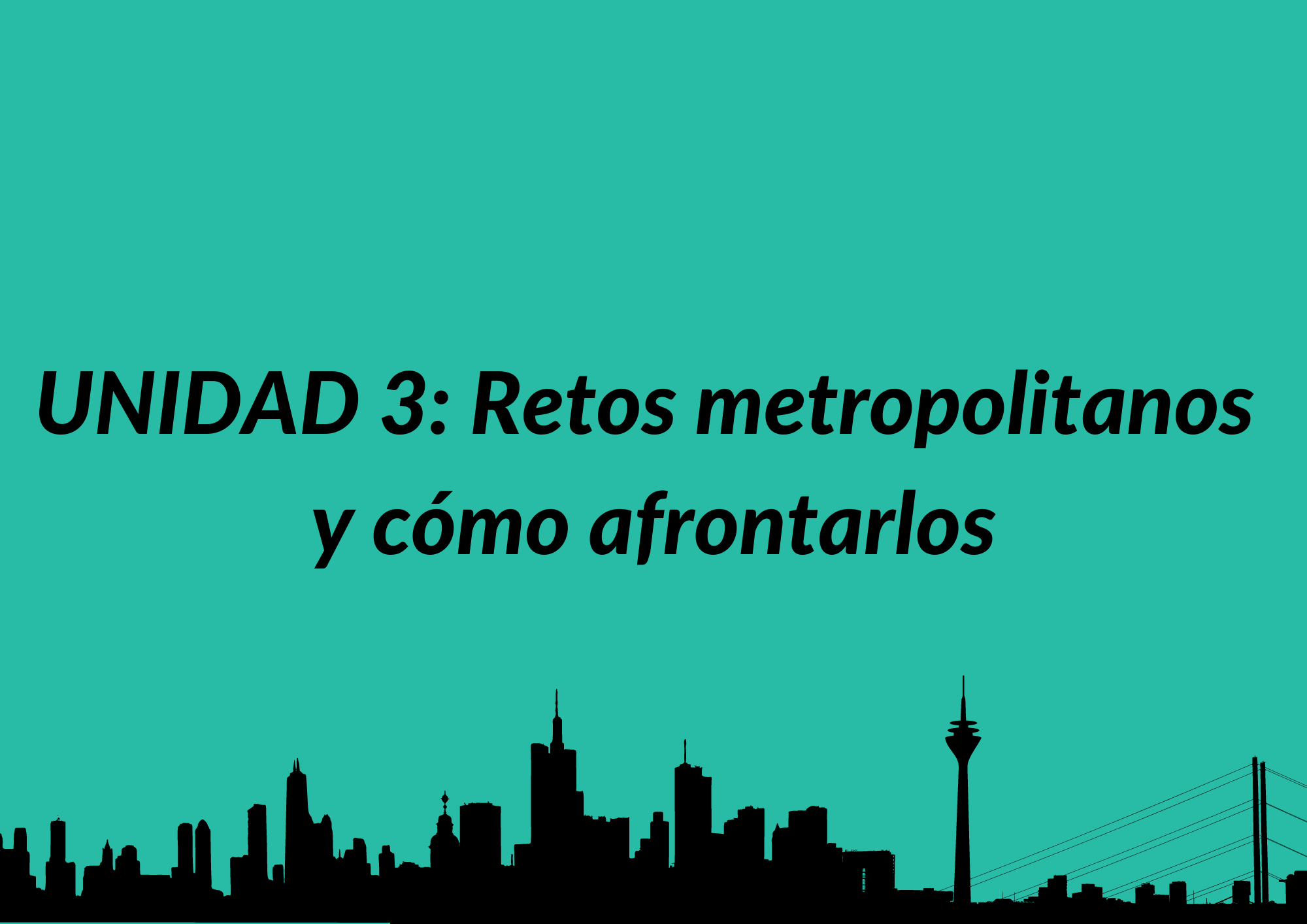
Unidad 3. Retos metropolitanos y cómo afrontarlos
Francisca Rojas, urban development specialist at the Inter-American Development Bank, together with Oriol Estela, General Coordinator of the Barcelona Metropolitan Strategic Plan, analysed the third module of this training course.
Francisca Rojas, especialista en desarrollo urbano del Banco Interamericano de Desarrollo junto con Oriol Estela, Coordinador General del Plan Estratégico Metropolitano de Barcelona, analizaron el tercer módulo de este curso formativo.
Internationalisation and metropolitan spaces
Based on the Metropolis Observatory Issue paper "The internationalisation of metropolitan spaces" Metropolis and "AL-LAS Project" offered three webinars, in the three official languages of Metropolis, to provide tools to local governments on how to build a strategic public policy of international action at the metropolitan level.

Unit 1. Internationalisation (french)
During this session, co-organised with AL-LAS, the participants were able to know more about experiences from Rabat, Dakar and Nouakchott in terms of internalization. The main topics of this webinar were the cooperation; the global impact of metropolitan mesures; the communication as a key element for public policy legitization; and recommentations for the internalization of metropolitan spaces.
Based on the Metropolis Observatory Issue paper "The internationalisation of metropolitan spaces" Metropolis and "AL-LAS Project" offered three webinars, in the three official languages of Metropolis, to provide tools to local governments on how to build a strategic public policy of international action at the metropolitan level.
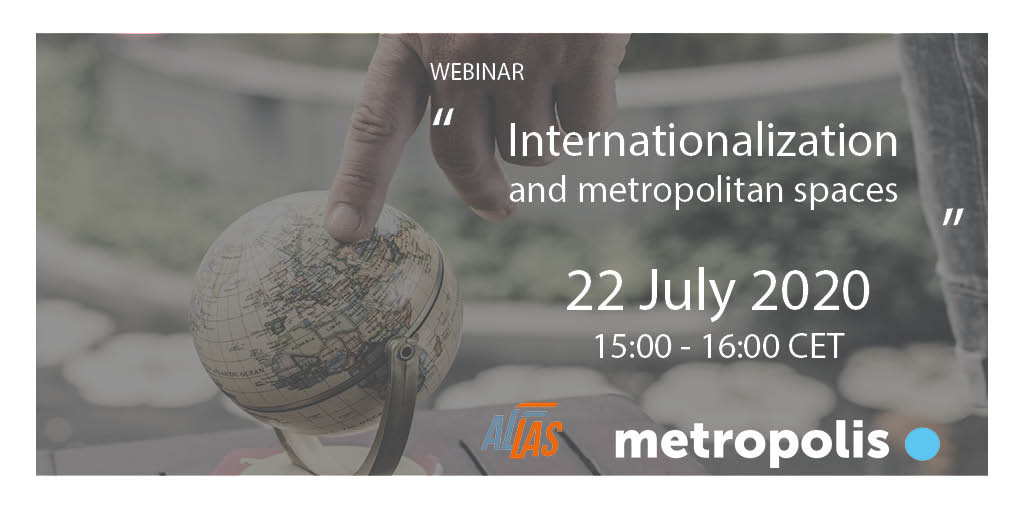
Unit 2. Internationalisation (english)
This session revolved around the importance of cooperation and international strategies in order to promote a global impact of metropolitan measures. With this goal, communication is a key element for public policy legitimisation. During this webinar there was a global analysis of internationalization strategies around the world by AL-LAs, as well as particular cases such as Greater Manchester and Tehran.
Based on the Metropolis Observatory Issue paper "The internationalisation of metropolitan spaces" Metropolis and "AL-LAS Project" offered three webinars, in the three official languages of Metropolis, to provide tools to local governments on how to build a strategic public policy of international action at the metropolitan level.
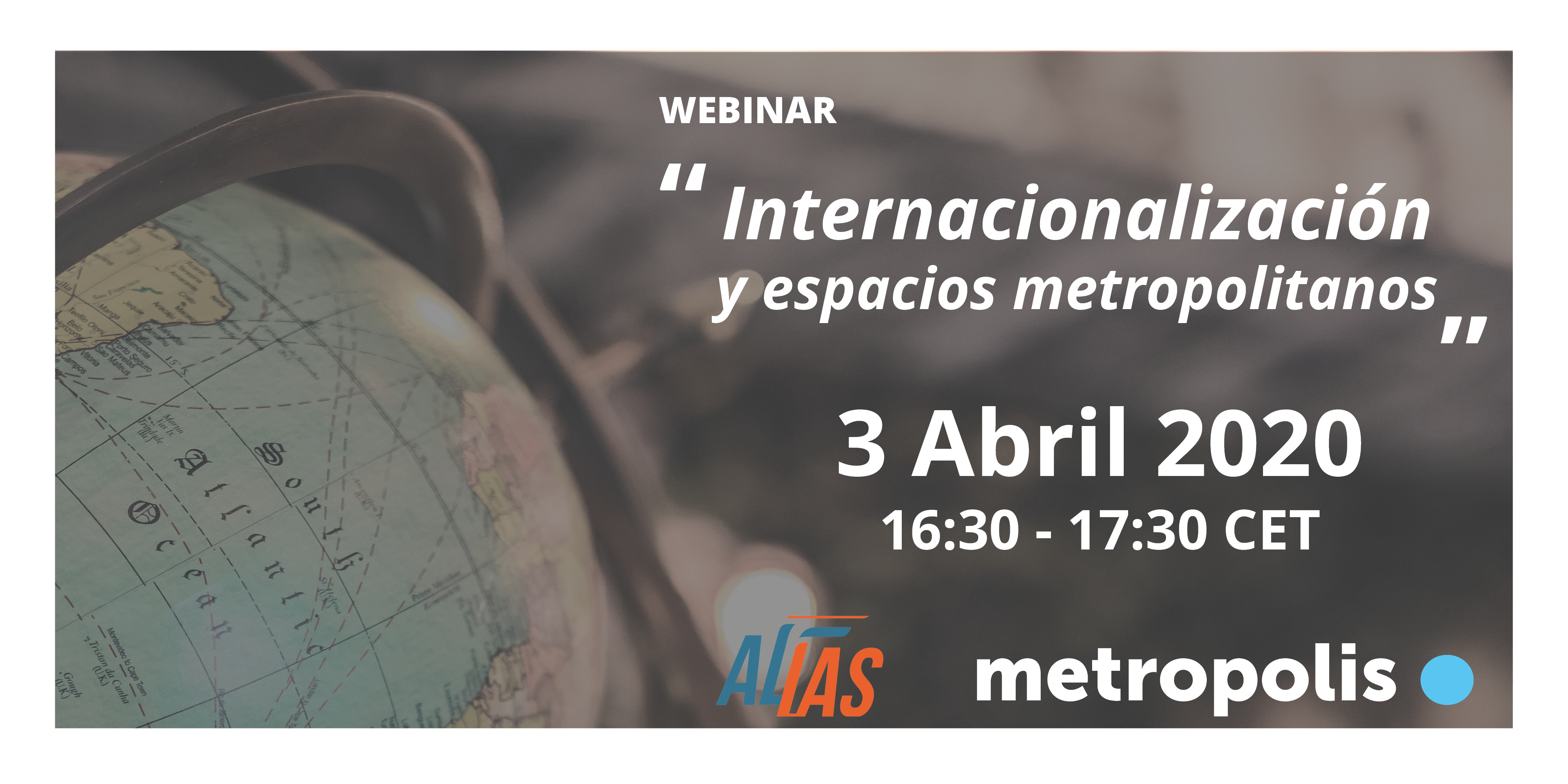
Unit 3. Internationalisation (spanish)
During this webinar, through the cases of Bogotá, Barcelona and Mexico City, attendants were able to learn more about internationalization and public policies as a way of global impact.
Rethinking metropolitan governance
Metropolitan governance is a process of coordination of stakeholders, social groups and institutions with the intention of delivering on debated objectives that have been discussed collectively and defined in fragmented environments. It involves a concept that spread as of the 1990s which is distinguished from the classic notion of “governance” by taking a broader view that covers not only the role of the public sector but also the private one in metropolitan governability.
La gobernanza metropolitana es un proceso de coordinación de actores, de grupos sociales y de instituciones con la intención de alcanzar unos objetivos debatidos que se han discutido colectivamente y se han definido en entornos fragmentados. Se trata de un concepto extendido a partir de los años 1990 que se distingue de la noción clásica de “gobierno” por una visión más amplia que incluye el papel del sector público, pero también privado en la gobernabilidad metropolitana.

Module 1. Models of metropolitan governance
Metropolitan governance is “a process of coordination of stakeholders, social groups and institutions with the intention of delivering on debated objectives that have been discussed collectively and defined in fragmented environments” (Borraz and Le Galès, 2001: 350). It involves a concept that spread as of the 1990s which is distinguished from the classic notion of “governance” by taking a broader view that covers not only the role of the public sector but also the private one in metropolitan governability.
Metropolitan governance is a process of coordination of stakeholders, social groups and institutions with the intention of delivering on debated objectives that have been discussed collectively and defined in fragmented environments. It involves a concept that spread as of the 1990s which is distinguished from the classic notion of “governance” by taking a broader view that covers not only the role of the public sector but also the private one in metropolitan governability.
La gobernanza metropolitana es un proceso de coordinación de actores, de grupos sociales y de instituciones con la intención de alcanzar unos objetivos debatidos que se han discutido colectivamente y se han definido en entornos fragmentados. Se trata de un concepto extendido a partir de los años 1990 que se distingue de la noción clásica de “gobierno” por una visión más amplia que incluye el papel del sector público, pero también privado en la gobernabilidad metropolitana.

Module 2. Right to metropolitan city in the framework of the NUA and the 2030 Agenda
The preamble to the World Charter for the Right to the City (2004) coordinated by Habitat International Coalition (HIC) references the right to the city through a series of points that make it possible to analyse it as a complex right, interdependent on other human rights, into which it is integrated in a new way of strengthening its vindication. In this unit we conclude that the right to metropolitan city is a human and therefore universal right. Its status of a collective right stems from the city understood as a common good and gives legitimacy to the action and organisation of the more underprivileged and infringed sectors that live there.
Metropolitan governance is a process of coordination of stakeholders, social groups and institutions with the intention of delivering on debated objectives that have been discussed collectively and defined in fragmented environments. It involves a concept that spread as of the 1990s which is distinguished from the classic notion of “governance” by taking a broader view that covers not only the role of the public sector but also the private one in metropolitan governability.
La gobernanza metropolitana es un proceso de coordinación de actores, de grupos sociales y de instituciones con la intención de alcanzar unos objetivos debatidos que se han discutido colectivamente y se han definido en entornos fragmentados. Se trata de un concepto extendido a partir de los años 1990 que se distingue de la noción clásica de “gobierno” por una visión más amplia que incluye el papel del sector público, pero también privado en la gobernabilidad metropolitana.

Module 3. Metropolitan Economic and Sustainable Development Practices and Policies: A Critical Look
In this unit smart city and urban resilience strategies are approached at a metropolitan scale to step up to the battle against social inequality and climate change.

